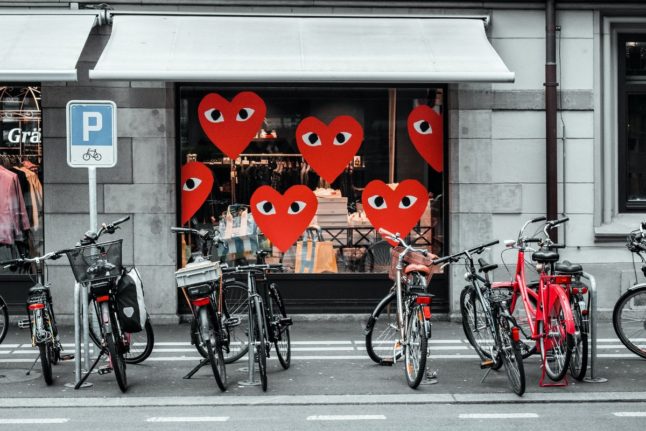It’s one of the quirks that many foreigners who come to live in Switzerland struggle with: on Sunday it is hard to buy things.
Yes, shops at petrol and train stations, as well as ski resorts, are allowed to open their doors. But in general, retailers – including supermarkets – are required by Swiss law to shut on Sundays.
The closure, which is regulated by labour law, used to be down to religious reasons. However, nowadays trade unions argue that Sundays should remain a day of rest for workers to be able to spend time with their loved ones without being stuck on a rota and possibly working both days of the weekend.
READ ALSO: Why is everything in Switzerland closed on Sunday – and what can you do instead?
But could this be about to change?
In the last few months, pressure has been building on politicians to relax these rules.
In July, Zurich and Geneva, along with Ticino and Lucerne, asked the Federal Council to permit more Sunday shopping in parts of these cantons that have particularly high tourist traffic.
Now Swiss Economy Minister Guy Parmelin has said he wants to see more shop allowed to open on Sundays in major Swiss cities.
Pamelin believes that allowing big shopping streets to open could attract more tourists.
The Swiss Department of Economic Affairs (EAER) confirmed that Sunday opening is “envisaged in urban tourist areas”. And it is moving ahead with plans. At the end of November, an “external consultation on this topic will be opened”, according to Urs Wiedmer, spokesman for the EAER. This process normally takes three months.
The plans are reportedly based on an initiative by Zurich’s Director of Economic Affairs, Carmen Walker Späh (FDP).
Under the proposals, cantons would determine where a need for extended Sunday opening exists.
Areas such as the Altstadt, Bahnhofstrasse and Europaallee in Zurich are under discussion as tourism zones, while the central districts in Lucerne, Lugano and Bern are also possible streets that could see Sunday shop openings.
In Geneva, the Rue du Rhône and the Rue du Marché are likely tourist zones, while in Basel the focus is on Freie Strasse. In Lausanne, Place Saint-François and Rue de Bourg could get the green light to open shops on Sundays.
However, trade unions are sceptical about the proposals.
“Although tourism in the cities has returned to pre-corona levels, they are now trying to continue the ‘salami tactics’,” Adrian Wüthrich, president of the trade union umbrella organisation Travailsuisse, told Blick. He referenced how it started with shops being allowed to open in tourist resorts and stations – and now it is moving to city centres.
So despite the moves, it could be a long process and there may be some pushback on Sunday opening in Switzerland. Watch this space.



 Please whitelist us to continue reading.
Please whitelist us to continue reading.
Member comments